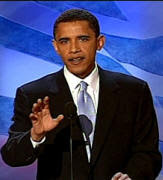
By John Ryan
During my three-day journey home from Iraq in 2006, I never prepared for the familiar-yet-oddly-estranged America that awaited me. I envisioned embraces with family, beer-filled reunions with friends, and a much needed close-to-a-war-torn romance.
My travel ended instead with a “Welcome Home” ceremony in a gymnasium at Fort Hood in Texas. There I proudly stood in front of the Master of Ceremony, under finger-painted banners. I felt the whir of adoration from the tearful audience. Once dismissed, I collided with my mother on the gym floor where she wrapped me in her arms, and together, to the auspicious lyrics of Kool and the Gang, we exited the buzzing gym. Ce-le-bra-tion. Boy was I glad to be back.
In the parking lot outside the gymnasium, I received the first of what would be hundreds of questions regarding my experiences in Iraq. My father, who had stood silently behind my mother in the gym, came forward and asked, “So, how does it feel to be back home?” followed by a cautious “And how was it over there, anyway?” My paltry answer sufficed at the time, although I can’t recall its details. It didn’t seem to matter much. What seemed to matter to him was that I was standing unscathed at his side. Of course, not everyone else would be so appeased, but his brief, although unscrupulous, questions alerted me of that. It was a startling revelation. Gone were the simpler days of, “Sir, Lieutenant Ryan reports as ordered!”
I was not my usual outgoing self during the first few months after my return. Frankly, I was a social introvert, who when pried, lashed out with a clipped army tongue. A beloved aunt asked me for my thoughts on the war, and I startled her with the sharpness of a radio transmission, “I don’t know. Don’t want to talk about it. Eliminator 21 out!” Even the most casual conversations besieged me. When a Maytag man, who came to fix my dishwasher, asked about my service in Iraq, I darted to the bathroom, fearful of his political acumen. I was anxious, irritable and, although I didn’t want to admit it, lonely.
Before I could answer anyone’s questions, I needed sometime to untangle my thoughts and emotions. Following a few Google searches, my self-diagnosis was a mild case of social anxiety with a twist of lost identity, caught somewhere in the Kübler-Ross cycle of grief. It dealt me spats of denial, anger, and bargaining, which evoked insecurities that were once disguised by my rank and perceived importance in Iraq. I was suspicious of everyone I met, pinned down by anticipated rhetorical attacks and the ubiquitous subject of a 20/20 interview.
A year after I arrived home, and once I accepted the eternal smudges on my self-esteem, my symptoms receded, revealing the affable demeanor of the high school senior of my past. Kübler-Ross’s final stage of acceptance had finally emerged. I found myself entertaining questions like, “Is it really that bad over there?” with short-but-somehow insightful paragraphs that left my lips with a smirk of contentment. Soon thereafter, I was nudging into conversations at dinner parties to explain how traumatic brain injury occurred in Iraq, and as I did, I felt my own synaptic realignment hasten its pace.

Armed with a new and optimistic outlook, I pontificated why we had invaded, where we went wrong, and how it all could be corrected; and in each case, I shared an anecdote that supported my assertions. I spoke with the uncanny cadence of a down-south drawl and stood with a straight back. It was the first time in a long time that my life outside a uniform and in my own skin was a happy one.
The torrent of my expression swept me into unexamined happiness. My stories streamed like montages from CNN and Fox News; they were cogent upon witness yet they remained single snapshots in time, certainly not indicative of the whole Iraqi tale. My narratives had succumbed to entertainment, and this acknowledgement returned a feeble inner voice. My tongue again knotted and my spine again sagged -- a year and a half of healing for naught.
Through all of this, I discovered that life often leads back to familiar quandaries; problems that re-emerge dissembled, baffling us again. Maybe in the coming months, I will speak openly about Iraq again. Maybe I’ll stop attempting to elucidate thoughts that I know will take years to dismantle. Or perhaps, in the luckiest case, a bolt of clairvoyance will change my life for the better. Until then, all I can do is embrace my family, enjoy a few drinks with friends, and court a new love. Indeed, I don’t feel my best and probably never will, but I’m no longer in Iraq. It is good to be home.
Former Army Captain John Ryan was honorably discharged in 2008 after five years of service. He served in Iraq in 2004 and 2006 and was awarded the Bronze Star for his actions. He graduated from the United States Military Academy at West Point in 2003.


